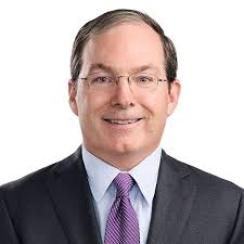The head of global macro, balance sheet, and risk at KKR argues that institutional investors must respect the surging productivity cycle that is elevating both earnings and growth, potentially boosting U.S. equity and credit markets in 2025.
Following the release of KKR’s 2025 Global Macro Outlook, Henry McVey, also CIO of the firm’s balance sheet, told Institutional Investor that investors should look to hold on to more assets linked to nominal GDP like infrastructure, real estate, and asset-based finance.
“We've long been talking about this idea of regime change, bigger government deficits, heightened geopolitics, a messy energy transition, and sticky inflation, but this time it is different,” said McVey, who added that although everyone is long nominal GDP nobody is really asking why the market is going up in the way that it is.

“There's something different going on right now, we have to respect this productivity cycle,” he added. “The big thing longer term that would really turn me from constructive to more cautious would be if the productivity story falls apart. Over the long-term an economy can’t sustain itself with big deficits, higher inflation and geopolitical complexity if productivity does not serve as an offset.”
The report, entitled Glass Still Half Full, suggests that there is more light than darkness due in the coming year, but higher valuations and positive sentiment will lead to modest returns.
Earnings and growth will continue to rise with increasing productivity. But when this trend reverses it will lead to a faster and more significant decline than consensus suggests.
As a result, McVey believes ‘controlling your own destiny’ through private equity is a better move than going out and buying large-cap growth technology companies.
“What we're doing in private equity, particularly around corporate carve outs, is very compelling,” he said. “You're betting on yourself and making your own luck; you're betting on operational improvement.”
The 200 or so companies that KKR owns are reinforcing infrastructure and creating resiliency around supply chains, data, and energy sources to move to a capital-light structure. This is leading to increased spending at a time when the government has too much debt and can’t provide capital.
McVey said he likes what is going on in global infrastructure, specifically in digital infrastructure and data, also highlighting Asia, especially China and Japan, as big opportunities.
“What’s happening in Asia is that it is becoming more interconnected, very similar to what happened in the U.S. and Europe,” he said. “But when you look at intra-Asia trade, it's gone from 46 to 58 percent and can potentially go to almost 70 percent, and that's creating demand for infrastructure and demand for credit — and that's a big, mega theme.”
Sometimes people look at clearly heightened geopolitics as a negative, he said. But the key thing is to understand how investors view the events.







